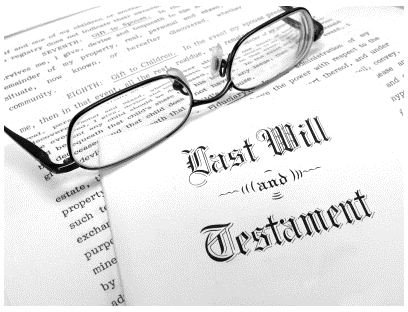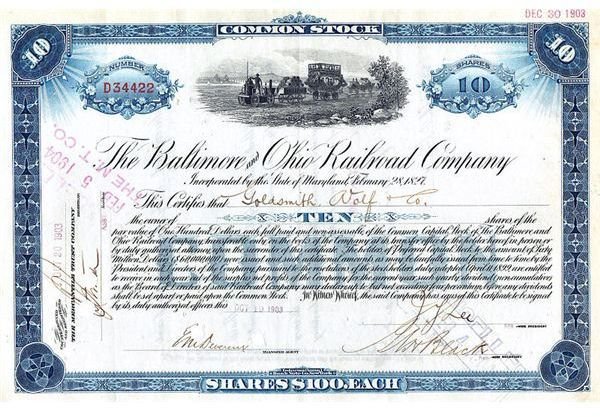How to Transfer Equal Shares of Stock to Heirs
Stocks, Bonds, IRA’s and Mutual Funds
Investors who have heirs are often interested in how to transfer equal shares of stock to heirs. This process can be handled prior to death through a gift transfer or it may be handled after death. After death transfer would result from specific instructions left in a will, or may be handled through a trust. Either way it is done, the transfer instructions must be clear. Heirs must meet certain legal requirements as well including providing certified death certificate(s) as well as copies of certified trust documents or a copy of the will which must also be certified.
As more people are invested in the stock market than ever before whether through stock ownership plans at work, 401(k) plans, stocks, IRA’s or mutual funds, more people than ever before are concerned about what happens to their investments when they die. A number of factors must be taken into consideration when planning asset transfers including the division of assets.
Some people invest in the stock market for long term gains and to save for retirement. Others invest their money in the stock market through retirement plans or stock options that are awarded as part of their employment. Either way, those who have long term stock market positions often need to know how to transfer equal shares of stock to heirs at the time of their death. Not all methods are right for every investor, they must be carefully reviewed to find the right method for each person.
Transfer of Shares Via Will or Trust

A will allows heirs to determine immediately what the wishes were of family members. Heirs who have had family members who have passed with no will (in-testate) will quickly find that the courts will determine the allocation of all assets in line with state laws.
Those who wish to have their assets divided properly among their heirs and are not using a trust should consider having a will. This can help protect the rights of heirs and transfer equal shares of stock to heirs if it is spelled out in the will. It is important to remember that competent legal counsel should be sought for those who have a number of assets. This can help provide more thorough estate planning and also help protect heirs.
Another option that some people elect to use is called a living trust. Living trusts are often used as a method of allowing an investor to designate who will receive their assets at the time of their death and avoid probate issues. Trust documents should include all assets (including cash positions) and a clear delineation of who receives what assets and what portion of assets at the time the trust is liquidated. Living trusts are generally liquidated after the death of the trustee
Gifting as a Method of Transfer
Transferring assets to your heirs can help reduce the amount of inheritance tax that they must pay. Gift tax laws were changed in 2009 and allow for a single person to gift as much as $12,000 annually and a couple can gift as much as $24,000. In some instances, those who are concerned about how to transfer equal shares of stock to heirs may wish to use the gift tax exclusions to their benefit.
Some investors find that it is more beneficial to transfer assets while they are alive to their heirs. Not only does this help reduce the amount of estate taxes that may be due, but it can also provide other tax benefits to both the gifting party and the receiving party.
Restrictions Regarding Retirement Accounts

It is important that those who are interested in transferring equal shares to their heirs understand the differences that apply with retirement accounts. In general, retirement accounts cannot be included as an asset in a trust (though the trust can be a beneficiary) nor can they be included in a will. Retirement accounts require that the person opening the account designate one (or more) beneficiairies. The percentage to each person must be included in the beneficiary designation. Adding each eligible person as a beneficiary can help make sure that transfers of shares is done equally to each heir.
When opening any type of a retirement accounts a shareholder is given the option to name their beneficiary. This may be changed by the owner at any time by providing the correct documentation. It is important to note that failure to change a beneficiary designation will impact how shares are divided. Shares may not be transferred equally among heirs unless you have specificially designated them that way.
Those who have investments will have to make sure that they have taken the necessary steps to ensure that those who hold their stock positions know how to transfer equal shares of stock to heirs. The process is not difficult and may be as simple as designating in your will that your assets are to be transferred in this manner.
Resources
Sources:
- Internal Revenue Service - IRS Rules regarding Gifting
- Retirement Plan Center - Your Living Trust
- Author experience
Image Credits
- Piggy Bank via stock.xchng/asterisco
- Last will and testament purchased via istockphoto.com/eric1513
- Common Stock via wikimediacommons.org/James G. Howes/Public Domain
Legal Disclaimer: The content in this article should not be considered legal advice or investment advice. Advice regarding investment advice, legal advice or tax advice should always be obtained from a licensed professional.
